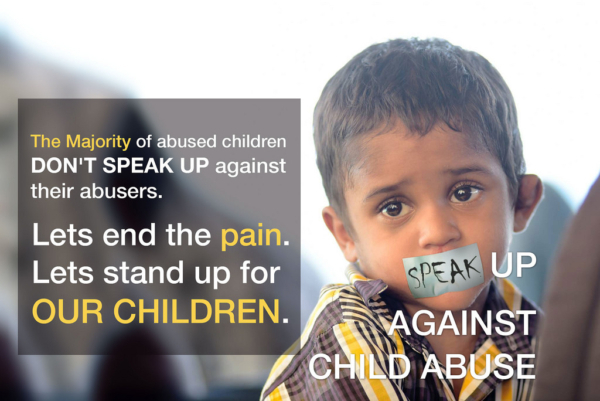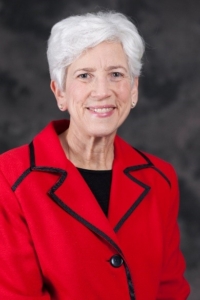

PSCP TRIFECTA
April 8, 2021 - April 9, 2021

PLEASE NOTE THE APRIL 9, 2021 PSCP TRIFECTA IS SOLD OUT. WE WILL BE OFFERING A SUMMER TRIFECTA ON FRIDAY, JULY 23, 2021, PLEASE SAVE THE DATE, REGISTRATION WILL BE AVALIABLE SOON. ANY QUESTIONS PLEASE CONTACT THE PSCP OFFICE AT: PSCPADMIN@PHILADELPHIAPSYCHOLOGY.ORG
PSCP TRIFECTA
Earn credits for all 3 mandatory workshops, Child Abuse, Suicide, and Ethics
Friday, April 9, 2021
All Day Training
Location: Online Workshop
Updated Child Abuse and Trafficking Recognition and Reporting Training for Mandated Reporters in Pennsylvania: 2019-2021 Update
Presented By: Ron Fischman, Ed.D., NCSP
Registration: 7:45am Program: 8:15am to 11:15am
3.0 CE credits
Act 31 Credits
Act 48 Credits Available
Important note: Even if you have taken this course during your last licensing period, this course is updated, allows for new CE credits, and satisfies your new requirement with the state of Pennsylvania in this new licensing period.
In accordance with a Pennsylvania mandate for all health care professionals and funeral directors, PSCP: The Psychology Network presents this three hour workshop to discuss the obligation of mandated reporters and moral obligation of permissive reporters to report reasonable suspicions of child abuse and child labor and
sexual trafficking.
Objectives:
- Discussing the differences between Child Protective Services and General Protective Services.
- Describing components of Child abuse and Exclusions to Child Abuse.
- Listing common signs of Child Abuse and Sexual abuse
- Describing Mandatory and Permissive Child Abuse Reporters and penalties for not reporting.
- Describing Sex and Labor Trafficking and Methods of Reporting.

For 34 years, Dr. Fischman was the Coordinator of Psychological Services at the Montgomery County Intermediate Unit in Pennsylvania. Certified in Pennsylvania as an English teacher, school psychologist, supervisor of psychological services, special education supervisor, director of pupil personnel services and holding a letter of eligibility as an Intermediate Unit executive director, Dr. Fischman also supervised related educational services of adapted physical education, OT/PT services and programs for intellectually gifted students.
From 1986 until 2012, Dr. Fischman served as a member of the Montgomery County Office of Children and Youth’s Multidisciplinary Team. From 1986 to 2009, Dr. Fischman served as a Pennsylvania Special Education Due Process Hearing officer. For 33 years, he served as the liaison between the Intermediate Unit and the Pennsylvania Governor’s School for the Arts.
Between 1975 and 1982, Dr. Fischman supervised a school psychology training clinic at Temple University. He has taught graduate courses in special education and psychology at Temple University, Pennsylvania State University, Thomas Jefferson University and Cabrini College. From 1975 to 2012, he had a private practice in Norristown, PA and in Richboro, PA. He is a Fellow of PSCP: The Psychology Network and of the Pennsylvania Psychology Association.
At the present time, Dr. Fischman, a former PSCP president and chair of the continuing education committee, is now serving as the membership chair. He has served on the School Psychology Committee of PPA and is a member of APA and NASP.
Suicide Among College Student Clients: Who is at Risk?
Presented By: Jeffrey Hayes, Ph.D.
Registration: 11:15am Time: 11:45am to 12:45pm
1.0 CE Credits
Suicide is the second leading cause of death among adolescents and young adults in the United States. This presentation will identify factors associated with suicide risk in that population, as well as describe the results of a national study of 391 college students who engaged in suicide behavior while in psychotherapy. Variables that predicted suicide behavior, as well as four types of suicidal individuals, will be discussed.
Objectives:
- Identify suicide prevalence rates among college students
- Describe factors that have been found in previous research to predict suicide risk
- List variables associated with suicide behavior in a recent, national study of college students
 Dr. Hayes is a professor at the Pennsylvania State University, where he has been a faculty member since 1993. Throughout his career, Dr. Hayes has researched and written about psychotherapy, focusing primarily on the characteristics of treatment providers that affect therapy process and outcome. During the past decade, he has also conducted research on college student mental health. Dr. Hayes has more than authored more than 100 publications, including two books. His research has been funded by several agencies, including the American Psychological Foundation and the American Foundation for Suicide Prevention. He has received early career awards from both the Society for Psychotherapy Research and the American Psychological Association, where he is a fellow in two divisions. Dr. Hayes has served as President of the North American Chapter of the Society for Psychotherapy Research, was chair of the Education and Training Committee for the American Psychological Association’s Division of Psychotherapy, and was associate editor of the Journal of Counseling Psychology. Dr. Hayes is currently the editor of Psychotherapy Research. He is a licensed psychologist and has provided psychotherapy to adults for the past 25 years. He lives with his wife, who is a psychologist in independent practice, in State College, PA.
Dr. Hayes is a professor at the Pennsylvania State University, where he has been a faculty member since 1993. Throughout his career, Dr. Hayes has researched and written about psychotherapy, focusing primarily on the characteristics of treatment providers that affect therapy process and outcome. During the past decade, he has also conducted research on college student mental health. Dr. Hayes has more than authored more than 100 publications, including two books. His research has been funded by several agencies, including the American Psychological Foundation and the American Foundation for Suicide Prevention. He has received early career awards from both the Society for Psychotherapy Research and the American Psychological Association, where he is a fellow in two divisions. Dr. Hayes has served as President of the North American Chapter of the Society for Psychotherapy Research, was chair of the Education and Training Committee for the American Psychological Association’s Division of Psychotherapy, and was associate editor of the Journal of Counseling Psychology. Dr. Hayes is currently the editor of Psychotherapy Research. He is a licensed psychologist and has provided psychotherapy to adults for the past 25 years. He lives with his wife, who is a psychologist in independent practice, in State College, PA.

Best Practices in Ethics
Presented By: Linda K. Knauss, Ph.D., ABPP
Registration 12:45pm Program: 1:30pm to 4:30pm
3.0 CE Credits
Act 48 Credits Available
Today’s clinical practice necessitates consideration of a myriad of ethical issues. How well do you balance conflicts between personal and professional values, your duties, and current liability risks? The purpose of this workshop is to provide practicing mental health professionals with guidance in order to negotiate many of these issues. Rather than focus on what psychologists need to do to avoid punishment, this workshop will focus on helping psychologists think through challenging ethical dilemmas.
Privacy, privileged communications, and confidentiality are cornerstones to effective psychotherapy, and areas that are of primary concern to mental health professionals. Challenges to these areas will be discussed as well as the implications of HIPAA. Informed consent will be discussed as a form of collaboration and shared decision making. In addition, ethical dilemmas related to the client-therapist relationship will be presented. These include: use of self-disclosure, accepting gifts, therapeutic touch, non-traditional settings for therapy, and non-sexual relationships after termination. Participants are invited to discuss ethical dilemmas from their own practices.
Objectives:
- Assess their current ethical compliance.
- Discuss how to respond appropriately to ethical dilemmas related to the client-therapist relationship.
- Apply ethical decision-making skills.
- Anticipate and resolve ethical challenges in their practice.
 Linda K. Knauss, Ph.D., ABPP, is a professor at Widener University’s Institute for Graduate Clinical Psychology. She has served as the Chair of the Ethics Committees of the American Board of Professional of Professional Psychology, the American Psychological Association, the Pennsylvania Psychological Association and as Co-chair of the Philadelphia Society of Clinical Psychologists’ Ethics Committee. Dr. Knauss has authored several book chapters and journal articles on ethics and has taught ethics at many local universities as well as continuing education workshops on a variety of topics in ethics.
Linda K. Knauss, Ph.D., ABPP, is a professor at Widener University’s Institute for Graduate Clinical Psychology. She has served as the Chair of the Ethics Committees of the American Board of Professional of Professional Psychology, the American Psychological Association, the Pennsylvania Psychological Association and as Co-chair of the Philadelphia Society of Clinical Psychologists’ Ethics Committee. Dr. Knauss has authored several book chapters and journal articles on ethics and has taught ethics at many local universities as well as continuing education workshops on a variety of topics in ethics.
Dr. Knauss is the past-president of the Pennsylvania Psychological Association, the Pennsylvania Psychological Foundation, and the Philadelphia Society of Clinical Psychologists. She was also a member of the American Psychological Association’s Council of Representatives (2000-2006; 2013-2018 representing Pennsylvania). Dr. Knauss is the recipient of a 2015 APA Presidential Citation for her work in APA as well as the recipient of the 2002 Ethics Educators Award presented by the Pennsylvania Psychological Association’s Ethics Committee, and the recipient of the 2004 Pennsylvania Psychological Association Distinguished Service Award.
Dr. Knauss maintains a private practice where she sees children, adolescents, adults and families.
PSCP: The Psychology Network is approved by the American Psychological Association to sponsor continuing education for psychologists. PSCP: The Psychology Network maintains responsibility for this program and its content.

